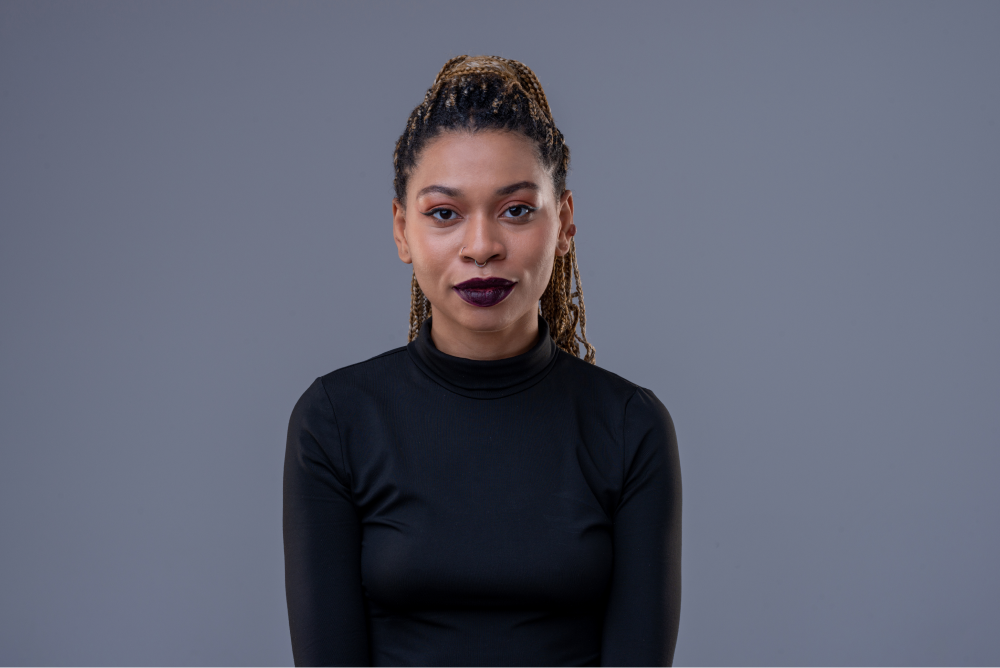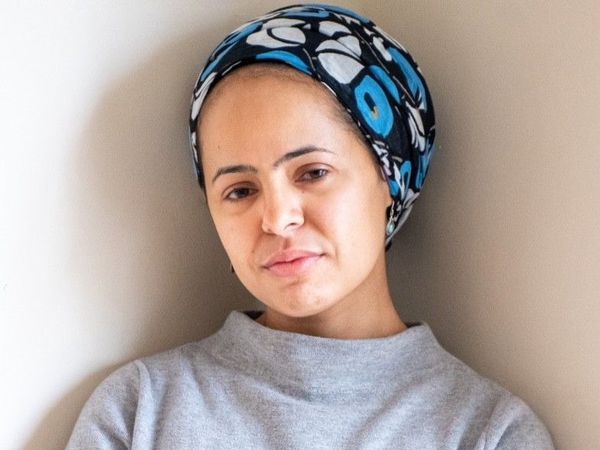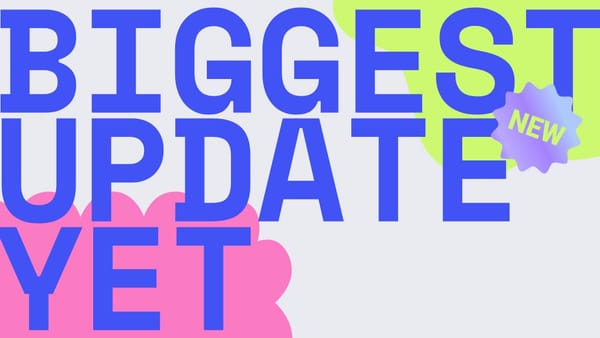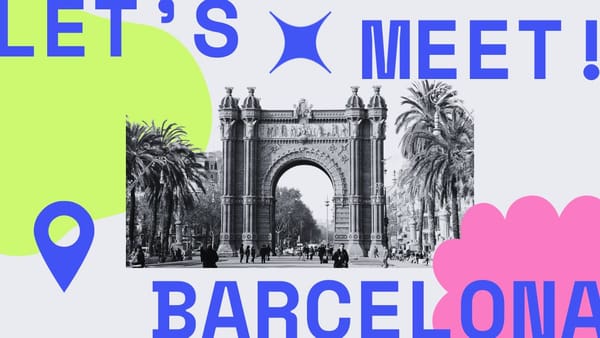Meet Mardiya Siba Yahaya
Mardiya is a digital sociologist, learning designer, researcher, and Global Community Manager at TeamCommUNITY.

Implications of datafied societies on minoritized communities in the Global South, design justice, inclusive societies, and practices of care, community and sustainability. All of that describes only some parts of Mardiya's work. Their research encompasses digital labor, gender and cybersecurity, surveillance, counterpublics and digital identities. As a movement builder, their goal is to design and facilitate sustainable and collaborative communities. Mardiya has lived in Ghana 🇬🇭, Rwanda 🇷🇼, South Africa 🇿🇦, and Kenya 🇰🇪.
What's your biggest question at the moment?
What would our public life, spaces and affective experiences be like if minoritized communities and people who understand gendered, sexual, racial, and ethnic marginalities designed it?
Are there specific technological innovations that give you hope for the future?
Circumvention technologies, technologies that allow digital rights defenders to track shutdowns, harmful speech and protect themselves, technologies that have advanced the work of artists (and protected them from AI exploitation), e.g. Glaze. Community networks that extend internet accessibility to rural areas and are communally governed. Technologies that enable quick response to disasters and have improved healthcare over time. The bicycle, and technologies that allow digital right defenders securely and safely build and maintain counterpublics, and cross regional networks.
What initiatives are you and your organization working on that you believe will make a significant positive impact on digital rights?
At Team Community, we are working and strengthening our:
- Weekly, monthly and series of virtual community cultivation events and initiatives. This includes our weekly text-based chat Glitter Meetup where community members can network in a cross regional way, our Regional Meetups, our popular VPN Community Initiative Village, and the various private spaces we host for diverse organizations and members on Mattermost. Also our informal concierge desk where we help you address any requests, problems, or needs you may have.
- Wiki, which we have begun updating with key resources and tips.
- Our Digital Rights Weekly Newsletter, where you can sign in and receive a weekly and free of charge roundup about the most noteworthy digital rights headlines around the world.
- Digital Rights Job Board, where every week we update the most popular Digital Rights Job Board in the field.
- The Global Gathering, annual in-person event that brings together digital rights defenders around the globe. This includes:
- Our Equity Fund
- The Partnership Program
- The Villages (both to happen in-person and virtual) and satellite events
- Service Branch, designed to help us download the expertise we have to you, but also support Equity in our space.
As technology continues to evolve rapidly, how do you see the landscape of digital rights changing in the next 5-10 years?
This is a question that I would usually avoid, because with lots of digital rights work and development we are seeing significant changes in policy, evolving critiques on methodologies and technical creation such as Sparkable to name a few. All of which could achieve significant growth in the next 5-10 years. I particularly would like to see us using our approaches and methods to collectively design, advocate, govern and build technologies that support marginalized groups.
On the other hand, if we consider the times we are in, the landscape could change where accessibility could still be a significant life altering issue. Digital rights is still a field that many people are grappling to understand, and surveillance technologies that are currently being introduced into public life, are now embedded.
Currently when technologies, private and civic are being created and deployed, there is a slight chance to pushback. But once it has been encoded into our lives, as we have seen with social media, then the conversation and work is transformed to something even more difficult that is, removing and/or reversing.
When considering the intersection of digital rights with other societal issues, such as social justice, environmental concerns, or economic disparities, what connections do you see, and how can these issues be addressed collectively?
One of the fundamental intersections is how our digital and physical selves, lives, engagements and identities connect. This means that economic disparities will ultimately affect your access, and experience using digital products and services.
The creation of technologies takes capitalistic approaches of domination, that often means exploitation, and ‘amassing’ and destroying existing resources and biodiversity. Some of this also means ignoring nuanced human experiences and relationality, to focus on supposed rational sets of instructions that are used to make extrapolated decisions on entire communities – often at the expense of those communities.
A way I see them being addressed collectively is by people in digital rights talking to each other, building cross-regional and interest networks, and trying to move from topics towards systems thinking and how such systems affect people, and society. It would require lots of resource investment, collective imagination, resting and reiterating our approaches. But first we definitely need to start speaking with each other and people beyond our space.
What initially sparked your interest in your field?
First a friend, and second the realization that we are in a digital society that is reproducing to an almost more complicated level of harm. But we also have a great opportunity to reshape, imagine and create what our digital society might be through experimentation and community networks, collaborations and active work.
What advice would you give to someone who wants to follow a similar path or do work similar to yours?
I reached out to women who provided me the opportunity to hone my interest and skills. I mention this because I want to highlight how important it is to engage with people already doing the work you want to do, and tap into their networks and expertise.
In the beginning I presented my research in spaces that I wanted to break into. I pitched articles which were eventually published, and when I spoke with people in the field I could show a not so extensive portfolio. While it is not easily accessible, remember the friend I had mentioned earlier? She introduced me to people, and recommended me for jobs that served as a foundation for getting into digital rights and adjacent work.
Maybe for me it was through a friend, for others it might have been they sharing perspectives, articles or resources that sparks the interest of others, but from my perspective it takes one person to share opportunities, introduce and recommend you for work in the field. And this currently related to my work as a community manager, that is to support people interested in digital rights, with resources and networking.
How do you balance your professional life with personal interests and well-being?
I am not very sure I have been able to do well in creating this balance yet, but maybe right now at the end of each work day, I close my work tabs and go about something that is not work related. I guess this is where TCU’s digital Justice everyday principle on the right to disconnect becomes necessary.
What is the most important lesson you've learned throughout your journey so far?
That I am still learning, but most importantly I need to invest in building a holistic human being beyond my work.
What is a book, article, or resource that has had a profound influence on your thinking or work?
Sensuous Knowledge by Minna Salami is one of the books that has shaped my interest in building spaces that cultivate engagement fulfilling to the mind body and soul while understanding that sometimes these forms of engagement or work might not fit in support of ‘rational’ ways of measuring learning and impact.
I loved Lamya’s memoir, Hijab Butch Blues, and Jasbir Puar’s Terrorist Assemblages, both deal with contradictions in life, systems and narratives. And one that has been instrumental in everything I write, Professor Pumla Dineo Gqola’s Female Fear Factory.
When it comes to books, and articles I can talk about many but will go with these for now. But most importantly while I read resources directly related to digital rights and justice, I try as much to situate that work in broader frames of society.
What's your favorite way to unwind and relax when you're not working?
Watch something, sleep a lot! Go to the gym and take girl walks. I used to play video games but not anymore. I often speak to my friends who remind me that in the end we have to live and love.
What music playlists do you listen to when you need a mood boost?

Where can we connect with you?
See more featured community members
Meet other fascinating folks in responsible tech, digital rights, and peacebuilding, and get their valuable insights:







